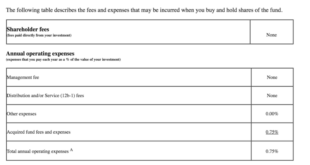Licensed Mortgage Broker: Navigating the Mortgage Process. The mortgage process can be daunting, but working with a licensed mortgage broker can simplify the experience and help you secure the best deal. In this comprehensive guide, we’ll explore the roles, benefits, and tips for working with a licensed mortgage broker while answering common questions to help you make informed decisions.
Introduction to Licensed Mortgage Brokers
A licensed mortgage broker acts as an intermediary between borrowers and lenders. They use their expertise to match clients with suitable loan products, negotiate competitive rates, and simplify the mortgage application process. Unlike bank loan officers, mortgage brokers have access to multiple lenders, offering you a broader range of options.
The Role of a Licensed Mortgage Broker
- Loan Product Evaluation: Brokers analyze your financial situation and present the best loan options tailored to your needs.
- Rate Negotiation: They negotiate with lenders on your behalf to secure favorable terms.
- Application Assistance: Brokers help you compile necessary documents and ensure your application meets lender requirements.
- Regulatory Compliance: Licensed brokers adhere to strict regulations, ensuring ethical practices and transparency.
Advantages of Hiring a Licensed Mortgage Broker
- Access to Multiple Lenders: Brokers provide a wider selection of loan products compared to direct banks.
- Time-Saving Expertise: They streamline the mortgage process, saving you time and effort.
- Negotiation Power: Their industry connections often lead to better rates and terms.
- Personalized Guidance: Brokers offer tailored advice based on your unique financial circumstances.
- Cost Transparency: Licensed brokers disclose their fees upfront, ensuring no hidden surprises.
How to Choose the Right Licensed Mortgage Broker
- Verify Licensing: Ensure the broker is licensed and certified by relevant authorities.
- Check Reviews: Look for testimonials and online reviews from previous clients.
- Experience Matters: Select a broker with a proven track record in the mortgage industry.
- Transparency: Ask about fees, lender commissions, and the range of products offered.
- Communication Style: Choose a broker who communicates clearly and regularly.
Steps in the Mortgage Process with a Broker
- Initial Consultation: Discuss your financial goals and mortgage needs.
- Pre-Qualification: The broker evaluates your financial documents and credit history.
- Loan Comparison: They present loan options from various lenders.
- Application Submission: The broker compiles your documents and submits the application.
- Loan Approval: Once approved, the broker coordinates with the lender to finalize the deal.
Top 10 Tips for Working with a Licensed Mortgage Broker
- Clearly define your financial goals before meeting with a broker.
- Gather all necessary financial documents early to streamline the process.
- Research potential brokers and verify their licensing.
- Ask for a detailed explanation of all fees involved.
- Compare multiple loan options to find the best fit.
- Be transparent about your financial history to avoid delays.
- Request regular updates on your application status.
- Understand the terms of the loan agreement before signing.
- Avoid taking on new debt during the application process.
- Trust the broker’s expertise, but don’t hesitate to ask questions.
Frequently Asked Questions (FAQs)
1. What is a licensed mortgage broker?
A licensed mortgage broker is a certified professional who helps clients secure loans by connecting them with suitable lenders and negotiating favorable terms.
2. How do mortgage brokers get paid?
They typically earn a commission from the lender or charge a fee for their services, disclosed upfront.
3. Are brokers better than going directly to a bank?
Brokers provide access to multiple lenders, offering a wider range of options compared to a single bank.
4. Is there a cost advantage to using a broker?
Yes, brokers often negotiate better rates and terms, potentially saving you money.
5. How long does the mortgage process take with a broker?
The timeline varies, but brokers often expedite the process compared to self-navigation.
6. Do brokers handle refinancing?
Yes, many brokers assist clients with refinancing existing mortgages.
7. How can I verify a broker’s credentials?
Check their licensing with regulatory bodies and read reviews or testimonials.
8. Can a broker help if I have a low credit score?
Yes, brokers can identify lenders that cater to clients with less-than-perfect credit.
9. Are brokers regulated?
Absolutely, licensed brokers must adhere to strict regulations and ethical standards.
10. Do brokers work with all types of mortgages?
Yes, most brokers handle conventional, FHA, VA, and other specialized loan types.
Conclusion
Choosing a licensed mortgage broker can be a game-changer in your home-buying journey. With their expertise, industry connections, and personalized guidance, brokers simplify the mortgage process and help you secure competitive terms.
As a borrower, it’s essential to choose a broker who is not only licensed but also transparent and experienced. By following the tips provided and staying informed through FAQs, you’ll be well-prepared to make confident decisions. A licensed mortgage broker doesn’t just find you a loan—they’re your partner in achieving your homeownership goals.
 mortgage.kbk.news
mortgage.kbk.news
